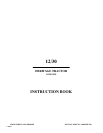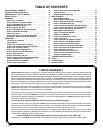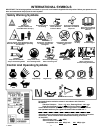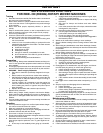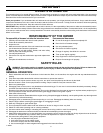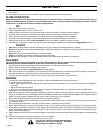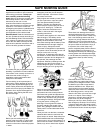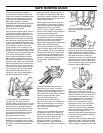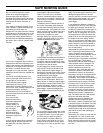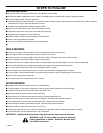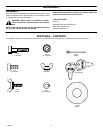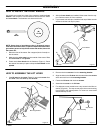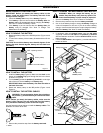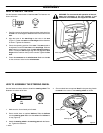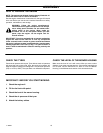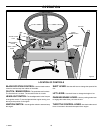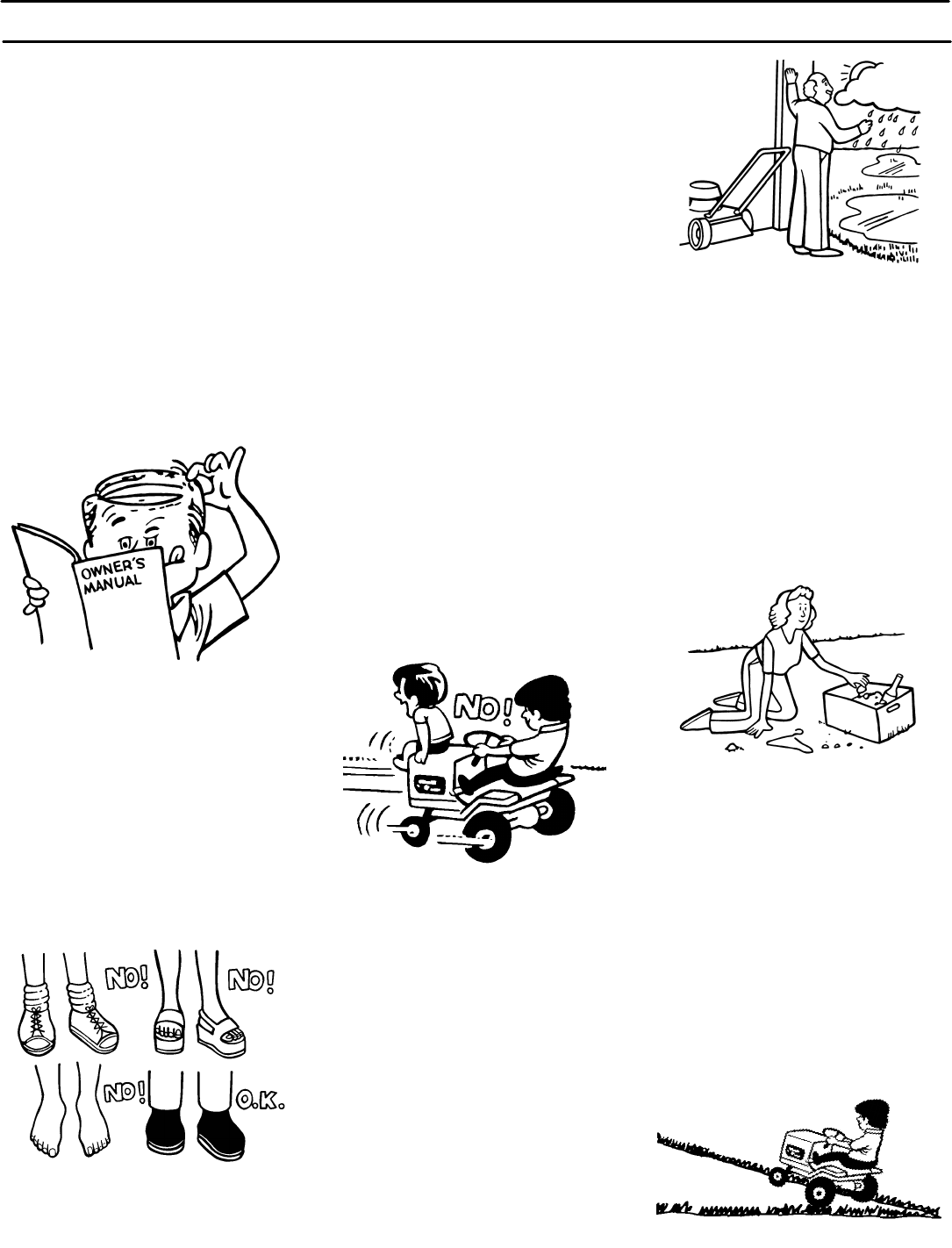
SAFE MOWING GUIDE
7
F−98857
Each person that operates power
equipment must learn to use correct and
safe mowing procedures. To help you
learn, carefully read the following
pages. Most of the time the operator was
not correctly shown or did not read the
instructions on the unit or in the
Instruction Book before using the unit.
Also, some operators do not have enough
experience. The result is unsafe use,
endangering the operator, bystanders and
the equipment. Another result can be a
poor appearance of the area mowed.
Read this book. Read the instructions on
the unit. Operate the mower according to
the Safe Mowing Guide. Follow all safety
rules, cautions or warnings in this book
and on the unit. Make sure anyone that
uses the unit reads the instructions and is
told how to safely operate the mower.
The mower will give you good service and
durability, if operated in normal conditions.
If the mower is not correctly serviced or is
used where the terrain is rough or
unsuitable, product performance and
safety will be decreased.
Correct clothing is an important part of
safe mowing. Safety glasses will protect
the eyes from objects discharged by the
mower. Safety shoes with steel plates can
protect a foot from injury by the blade. For
protection from objects discharged from
the mower, wear clothing that will cover
the arms and legs.
Before you start cutting the grass,
practice using the mower in a large open
and level area. Learn the location of the
controls on the mower. Know the purpose
of the controls and how they work. In an
emergency, how fast you can stop the
blade is important. Learn how to control
the mower at all times.
Many engines are started by hand. When
you use a pull start or rope start, place
your feet apart and away from the
blade(s). Hold the rope handle tight.
Never wrap the rope around your arm or
fingers for a “better grip”. To start the
engine, follow the instructions on the
mower, in this book and in the engine
operating instructions.
For electric start engines, sit in the seat to
start the engine. The battery can be
dangerous. Follow the instructions on the
battery, the acid container, and in this
book when working with the battery. Even
small batteries have enough voltage to
cause an injury. Always be careful.
The mower is designed to be operated by
one person. Never let another person ride
with you on the unit or on any
accessories. A passenger will make the
unit harder to control, block the visibility or
distract the operator and is dangerous to
the operator, the passenger and the
equipment. Without a passenger seat, the
passenger can fall from the mower or
contact dangerous parts. A mower is not
a toy for showing off or for giving rides.
Never cut a wet lawn. Wet grass can
cause an accident, affect mower
performance and can cause problems
with future lawn growth and appearance.
Wet grass is slippery and can cause the
mower to slip. Someone can get injured
by touching the blade(s). Wet grass tends
to clog the mower, causing poor
discharge. Cut wet grass will collect on
the lawn, retarding the growth of the
grass. Also, getting the mower wet will
cause parts to rust and decrease the life
of the unit.
When you look over the lawn, remember
obstacles that cannot be removed, like
pipes, stumps or stones. Keep away from
these obstacles that can cause damage
to the mower or injury to the operator or a
person near the mower. Clear the area of
stones, toys, wire or other loose objects.
These items can damage the mower or
can be discharged by the mower blade.
The blade of a power mower rotates very
fast. It can discharge stones and other
objects over a long distance which can be
dangerous. The force of the objects can
break windows, cause injuries or even put
an eye out. Most of the time the injury is
to a person, like a child. Keep every
person completely away from the area to
be mowed. Make sure the grass is not
discharged toward anyone. Planning your
mowing pattern has a double advantage.
It can decrease the possibility of an injury
and make the clean up after mowing
easier.
Check the terrain of the area to be
mowed. Mow in a pattern that will keep
you away from dangerous areas. Check
the distance you need to stop and the
distance available to turn. Slopes and
rough terrain must be mowed carefully
and some areas must not be mowed at
all. With riding mowers, mow up and
down the hill. When you must mow rough
terrain or on slopes, never change
directions or change gears and stop in
these areas only in an emergency.
Before you ride up or down a slope, try to
back straight up the slope. Do not ride up
or down a slope that is too steep to back
straight up. See the “Guide” in the back of
this Instruction Book to check any slopes.



